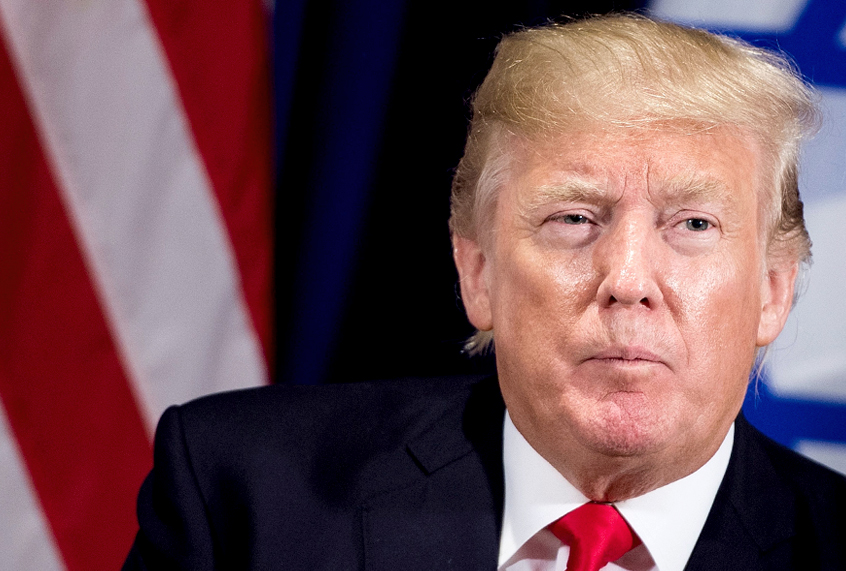In a move that has received widespread condemnation from around the world, President Trump announced in a speech on Wednesday that his administration will recognize Jerusalem as the capital of Israel and plans to move the U.S. embassy in the Jewish state to Jerusalem, from its current location in Tel-Aviv.
The decision is a break from decades of U.S. foreign policy and could ignite regional tensions that already exist in a powder keg. The potential consequences should come as no surprise to even a mild observer of history and politics. So why would a U.S. President knowingly cause such upheaval?
When it comes to Trump, there are questions of personal gain behind any move, even if it’s just to change the topic of conversation. Ahmed Shihab-Eldin, an Arab-American journalist who has reported from the region and is senior correspondent for AJ+, told me in an interview for “Salon Now” that he believes the investigation into election meddling may have something to do with it.
“He’s distracting from his own political disaster with the news around Flynn and the guilty plea,” Shihab-Eldin said. He added that Trump is also galvanizing his Evangelical base and wealthy Israeli-American political donors like Sheldon Adelson.
What’s garnering less attention, however, is that Trump’s son-in-law and senior advisor, Jared Kushner, clearly has a stake in the game. His designation to lead the Middle East peace process was absurd enough, given Kushner’s complete lack of diplomatic credentials, but as Shihab-Eldin pointed out, “he’s the co-director of a foundation that for over a decade has been funding illegal settlements.”
In addition, according to Mike Flynn’s plea, his conversations with Russian Ambassador Kislyak during the transition involved not only Russian sanctions, but an attempt to pressure other countries out of voting for a U.N. Security Council resolution that would have criticized Israel’s building of settlements. In other words, collusion to subvert the Obama administration’s foreign policy in Israel’s favor.
In his speech on Wednesday, the President said that, “this decision is not intended in any way to reflect a departure from our strong commitment to facilitate a lasting peace agreement.”
Shihab-Eldin says the opposite is true and that the move has exposed “what people have known for decades, which is that the U.S., you know, has inherent bias in terms of its role as a peace broker. It’s kind of all coming to light.”
Watch the video below to hear more of Shihab-Eldin’s analysis:
Tune into SalonTV‘s live shows, “Salon Talks” and “Salon Stage,” daily at noon ET / 9 a.m. PT and 4 p.m. ET / 1 p.m. PT, streaming live on Salon, Facebook and Periscope.


